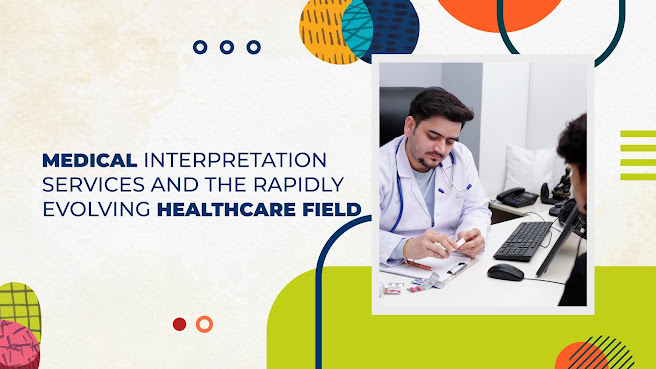Introduction
to Medical Interpretation Services
In the dynamic landscape of healthcare, effective communication is paramount. However, linguistic diversity among patient populations presents a significant challenge. Medical interpretation services play a crucial role in bridging this communication gap, ensuring that patients receive the care they need regardless of language barriers.
The
Growing Need for Medical Interpretation Services
As communities become increasingly diverse, healthcare providers face a growing demand for language support. Legal requirements mandate that healthcare organizations provide interpretation services to limited English proficient (LEP) patients. Failure to do so not only compromises patient care but also puts providers at risk of legal repercussions.
Challenges
in Medical Interpretation
Language barriers extend beyond simple translation; they encompass cultural nuances, literacy levels, and dialectal variations. These complexities make effective communication challenging and underscore the need for qualified medical interpreters who can navigate these nuances with sensitivity and accuracy.
Benefits
of Utilizing Professional Medical Interpreters
When healthcare providers enlist the services of professional interpreters, they can expect improved patient outcomes and satisfaction. Clear communication leads to accurate diagnosis and treatment, reducing the likelihood of medical errors and enhancing overall quality of care.
Types of
Medical Interpretation Services
Medical interpretation services come in various forms to accommodate the diverse needs of patients and providers. On-site interpretation involves an interpreter physically present during appointments, while remote interpretation utilizes technology to connect providers and patients virtually.
Technological
Advancements in Medical Interpretation
Advancements in telemedicine and language interpretation software have revolutionized the delivery of interpretation services. Video interpretation conferencing platforms allow for real-time communication between patients and interpreters, regardless of geographic location, facilitating access to care for remote and underserved populations.
Training
and Qualifications for Medical Interpreters
Effective interpretation requires more than language proficiency; interpreters must also possess a deep understanding of medical terminology and ethics. Training programs and certification processes help ensure that interpreters meet these standards, ultimately enhancing the quality and reliability of interpretation services.
Integration
of Interpretation Services in Healthcare Settings
Successful integration of interpretation services into healthcare settings requires collaboration between providers and interpreters. By incorporating interpretation into electronic health records (EHRs) and care workflows, healthcare organizations can streamline communication processes and improve efficiency.
Cost
Considerations and Funding Sources
While the benefits of medical interpretation services are clear, financial considerations can pose challenges for healthcare organizations. However, various funding sources, including government grants and reimbursements, are available to support language access initiatives and offset implementation costs.
Ensuring
Quality and Accuracy in Interpretation Services
Quality assurance measures, such as interpreter training and proficiency assessments, are essential for maintaining the integrity of interpretation services. Continuous professional development ensures that interpreters stay abreast of medical advancements and best practices in language interpretation.
Legal and
Ethical Considerations
Providers must adhere to legal and ethical guidelines to protect patient confidentiality and privacy. Compliance with regulations such as the Health Insurance Portability and Accountability Act (HIPAA) is essential to safeguard patient information and maintain trust between providers and patients.
Case
Studies: Successful Implementation of Medical Interpretation Services
Numerous healthcare institutions have demonstrated the positive impact of effective interpretation services on patient outcomes. By sharing these success stories, providers can gain insight into best practices and strategies for integrating interpretation into their own practices.
Future
Trends in Medical Interpretation
As technology continues to advance, the future of medical interpretation holds exciting possibilities. Artificial intelligence (AI) has the potential to revolutionize language interpretation, offering real-time translation services that are accurate, efficient, and accessible to all.
Conclusion
In conclusion, medical interpretation services play a vital role in ensuring equitable access to healthcare for all patients, regardless of language or cultural background. By prioritizing language access and investing in professional interpretation services, healthcare providers can improve patient outcomes, enhance satisfaction, and uphold their commitment to delivering quality care
 Reviewed by Metaphrasis
on
March 21, 2024
Rating:
Reviewed by Metaphrasis
on
March 21, 2024
Rating:








No comments: